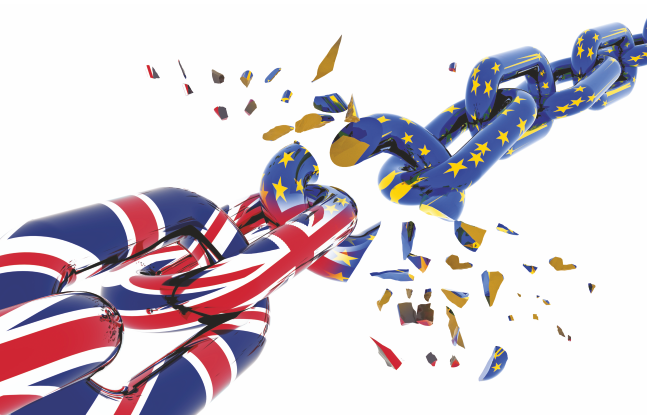As the Brexit deal hangs in limbo, Sri Lanka has much to worry about its future trade relations with UK and the European Union.
As UK Prime Minister, Theresa May has failed to garner the required support in parliament for the proposed Brexit deal, leaving the country on the verge of dilemma over Brexit, Sri Lanka, the largest exporter of garments and rubber products to UK, is pondering over the consequences of Brexit on its trade. The British parliament has so far voted against the Brexit deal on three occasions, this has brought new set of concerns to Sri Lanka.
Sri Lanka exported nearly $3.0billion worth of goods to the European Union which were largely dispatched to the UK amounting to approximately $1.0 billion in 2018. The European Union market access for Sri Lanka is possible because of Generalised System of Preferences Plus (GSP+) concessions, which came in to effect on the January 1, 2014 for a 10-year cycle, due to end on the December 31, 2023. Sri Lanka does not have much time to be complacent of its current status, moreover, the outcome of Brexit will have a direct impact on Sri Lankan trade.
In the event of no-deal Brexit, UK will move out of the EU overnight with no safeguards or transition periods. So, UK will no longer fall under the EU GSP+ concessions, and if it imposes higher tariffs on Sri Lanka following Brexit. The tariff escalation between Sri Lanka and the UK will effect Sri Lankan trade and may reduce its exports to the UK by 3.1 per cent, and total exports by 0.4 per cent. It could offset the country’s trade redirection loss of 0.07 per cent as the garments exports from the country to UK would fall by 7.7 per cent. This can also lead to loss of the country’s GDP by 0.11 per cent.
The possibility of a readjusted Brexit deal or a second referendum seems very unlikely under the circumstances in Britain. Sri Lankan exports could potentially face tariffs if UK leaves EU abruptly.
The British and Sri Lankan governments have discussed implementing potential trade agreement similar to the existing GSP Plus programme following Brexit. The discussions are primarily aimed at ensuring that Sri Lanka continues to reap the benefits through an array of measures implemented by the UK Government in the form of tariff and non-tariff concessions. But the island nation has not much to be jubilant for this development, as it is very tedious process for UK to enter into trade deal negotiations with at least 52 different nations including Sri Lanka after Brexit, which will involve a lot of legislation, and bureaucracy hassles.
After Brexit, If UK standardises its GSP schemes by introducing a single preferential tariff rate for developing countries, then Sri Lankan exporters will face an increase in competition from other developing countries for the British market.
The EU employing more protectionist policies could potentially impose impediments on Sri Lanka’s trade and threaten to offset the benefits from Sri Lanka’s competitive advantage derived from low-cost labour.
Moreover, Sri Lanka will lose its preferential access to the EU market when it moves to an upper middle- income country, and therefore, needs to look at other ways to increase its role in the international trade system.
However, in spite of the above possible implications, some section of experts believe that Sri Lanka will not be greatly affected by Brexit. According to Asian Development Bank (ADB) trade redirection to increase agricultural and industrial exports could offset hits to the Sri Lankan economy.
The Brexit may or may not have austere impact on Sri Lankan trade, but the island nation has to reach the threshold of the World Bank ranking of Upper-Middle Income category to be free from such international shocks in future. In the long run of course, Sri Lankan interests are best served, if they can urgently look at diversifying its export markets whilst also improving its natural competitiveness in order to protect itself from specific external interruptions like Brexit.








